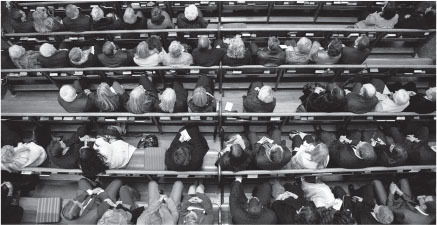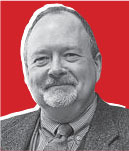Assessing what’s urgent isn’t a majority vote

Viewable Image - we need triage in our churches
PHOTO: SHUTTERSTOCK.COM
My late father was a man of many interests. He loved sports – he had been a fine hockey goalie in his day, backstopping both the Peterborough Petes in Junior A and the Queen’s University Golden Gaels after that. He loved books, particularly history and fiction. He loved his family and his friends and his church.
But when Dad was in the hospital emergency room or operating theatre as consulting surgeon, he set aside all those interests for the main purpose – medicine. If someone is suffering a broken bone or a ruptured organ, now is not the time to chat about your favourite team or book.
I thought about the need to conduct triage – to assess the situation and then put first things first, second things second and third things third – as I listened to presentations at the recent annual meeting of the American Academy of Religion.
Sessions at this conference of religion scholars can be abstruse, but the sessions I attended focused on vivid and immediate concerns – racism in our churches, abuse in our homes and poverty in our society.
As a white man, born in a physician’s family and without much in the way of illness or injury along the way, I have found myself wondering at times – I am ashamed to admit – why so many black people (and Indigenous people, and Asian people, and…) seem preoccupied with race, so many women seem fixated on issues of gender, and so many advocates for poor people (I don’t know many actual poor people) seem focused on economics and social policy.
There’s a whole big world out there! Why can’t we talk more about other things?
Furthermore, surely what matters most is our relationship with Jesus. Why does the conversation keep getting pulled into yet another recent outrage of racism or sexism or economic disparity?
This reaction of mine is the automatic stupidity of privilege.
My life has its challenges – work, family, church, friends, politics and so on – and each can be taken on its own terms from a kind of "neutral" or untroubled position. But for my racialized and female and impoverished neighbours, life isn’t experienced that way.
It is experienced instead, so they tell me if I will listen, in a state of constant vigilance. Danger can come from almost anywhere. And each day is another gauntlet of nasty little slights, yes, but also of grinding submission to a disrespectful and exploitative regime.
One session at the American Academy of Religion featured scholars discussing who gets to define evangelicalism in America – and none of them were white.
I thought about the 1950s when Billy Graham and Co. sought a healthier form of Protestantism than fundamentalism. Graham and his cohorts didn’t ignore race, but it wasn’t high on their agenda either.
Compare the Graham agenda with the agenda of their African American contemporaries. Surely racial oppression was right near the top of their concerns, just after "salvation in Jesus." How could it not be?
It’s hard to focus on other things when your arm is fractured or your head is aching. It’s hard to participate fully in a project when you’re not allowed to stand up straight or speak up truly. It’s hard to take the agenda of white men seriously, however sincere we are, when we relegate your daily pain to just one issue among many.
How can I expect a woman or child to pay attention to what I’m teaching in church when they’re grieving an incident of pain and shame while fearing the next one?
How can my nonwhite audiences listen to me say what I think needs saying when they see little evidence that I take account of their awful situation?
How can people who will depart this church service to confront life in the slums possibly attend to the agenda of people who use streets only for locomotion and never for living?
What issues afflict members of our congregations and larger communities such that until they are addressed, it won’t matter what else we do or say?
A hungry stomach has no ears, as the saying goes, and that person bleeding out quietly in the 14th pew seems to be having trouble appreciating my brilliant sermon….

John G Stackhouse
Image Caption
JOHN G. STACKHOUSE JR.
John Stackhouse teaches at Crandall University in Moncton, N.B. His latest book is Why You’re Here: Ethics for the Real World (Oxford, 2017). Find more of these columns at www.FaithToday.ca/ChristAndCulture.